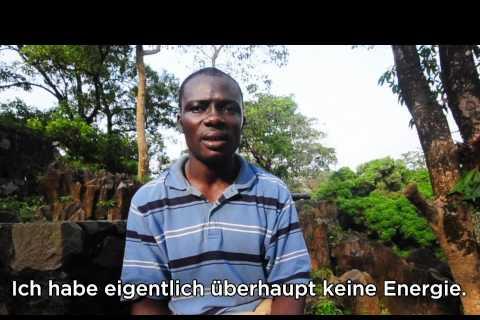Since time immemorial, human beings have used biomass to produce energy in a sustainable way. In the meantime, industrialization is exhausting the world's reserves of fossil fuels, leading to the frenetic search for other sources of energy. One of these is bioenergy, based on the production of energy from living matter, or biomass.
Biomass is organic material such as trees, shrubs, grasses, grains, algae, microbes and also plant residues.
Bulletin articles
The Swedish state-owned multinational Vattenfall is Europe's fifth largest energy producer. Its affiliate Vattenfall Europe, based in Berlin, is one of the four biggest companies in the German energy market. Vattenfall's energy production there is primarily fuelled by coal (65%) – it has its own lignite mines in east Germany – and uranium (26%). But the company has also branched out into the use of supposedly “clean” energy sources, like wood.
A new expansion cycle: carbon and biomass plantations
Last month, I was in Bangkok for a meeting about carbon markets in southeast Asia. It was ironic to be discussing a false solution to climate change when large areas of Thailand were underwater and floods were threatening the capital. (While we cannot say that this particular flood was caused by climate change, we can say that this type of flood will become more common as the planet continues to warm.)
Next week an international farmers' conference will take place in Mali to stop land grabbing. Organized by La Via Campesina, it is aimed at opening a space to listen to and learn from local peasants, mainly from African countries, on what they have to say about land grabbing and to unite forces to resist the process and build future strategies.
The state of Acre, in the Brazilian Amazon region, earned worldwide attention in the late 1980s through the struggle for social and environmental justice waged by the late Chico Mendes. In more recent years, the state has once again gained prominence in Brazil and internationally, but for very different reasons. This time the spotlight on the state is a result of the propaganda around the “green” development model promoted through “forest governance” and based on the so-called “sustainable management” of the forests and the sale of environmental services.
The new abstractions created by the climate change discourse in the form of REDD and REDD+ have come to deepen the commodification of forests as greater mobility is created and trading across countries and continents is made possible through climate mitigation and forestry schemes, say Kanchi Kohli and Manju Menon from the Indian organization Kalpavriksh, in the recent publication “Banking on Forests: Assets for a Climate Cure?”
For thousands of years, different peoples in the most disparate parts of the world – especially women, but also men – have guaranteed food sovereignty based on the biodiversity of the regions where they live. Through their wisdom and knowledge, they were able to distinguish and use an abundance of seeds, roots, fruits, leaves, trees, shrubs, medicinal plants, animals, fish and much more.
Food sovereignty, which is centred on local autonomy, local markets and community action, and encompasses issues like agrarian reform, territorial control, biodiversity, cooperation, health and many others connected to food production, has become a process of grassroots resistance. And, as we noted in WRM Bulletin 115, its conceptualization is not only deeply rooted in the social movements fuelling these struggles, but is also an opportunity to bind them together in a common agreement over objectives and actions.
At WRM we have been publishing our monthly electronic bulletin since 1997. It is currently sent in four different languages to more than 15,000 subscribers. This month we have launched an online survey to evaluate the bulletin, with the goal of improving it so that it can better serve its purpose as a bridge for the exchange of information and a tool for local community struggles.
We invite you to take part in this very brief survey to help us make the bulletin as effective as possible.
This past September 21, on the occasion of the International Day Against Monoculture Tree Plantations, representatives of social environmental organizations from Africa, Asia, Latin America and Europe gathered in Montevideo , Uruguay to exchange knowledge and experiences of resistance to the impacts of tree plantations. One of the outcomes of the meeting was the issuing of the Montevideo Declaration, available at:
http://www.wrm.org.uy/plantations/21_set/2011/Declaration.html
You can keep up with what's happening at WRM on Facebook athttps://www.facebook.com/WorldRainforestMovement
Among other things, check out the photos of the last WRM international meeting in Montevideo , including our field trip, as well as regular news updates from WRM and our partners

